South Korean police have launched an investigation into president Yoon Suk Yeol over allegations of “insurrection” following his abrupt and short-lived declaration of martial law earlier this week.
The decree, which lasted six hours and plunged the country into political chaos, could have grave consequences for Mr Yoon as insurrection is a crime that bypasses presidential immunity and carries the death penalty.
The inquiry follows two complaints filed by the opposition Rebuilding Korea party and 59 activists, with prosecutors also launching an investigation against interior minister Kim Seon Ho and former defence minister Kim Yong Hyun for their roles in the crisis, according to Yonhap News Agency.
President Yoon declared martial law in an extraordinary late-night televised address on Tuesday, citing unnamed security threats.
The emergency measure suspended civilian rule, deployed soldiers and helicopters to the National Assembly, and triggered widespread shock. But the declaration of martial law, South Korea’s first in over 40 years, was revoked within six hours after opposition lawmakers voted against it early on Wednesday morning. Opposition parties have condemned the move as a breach of the constitution and announced plans to impeach the president.
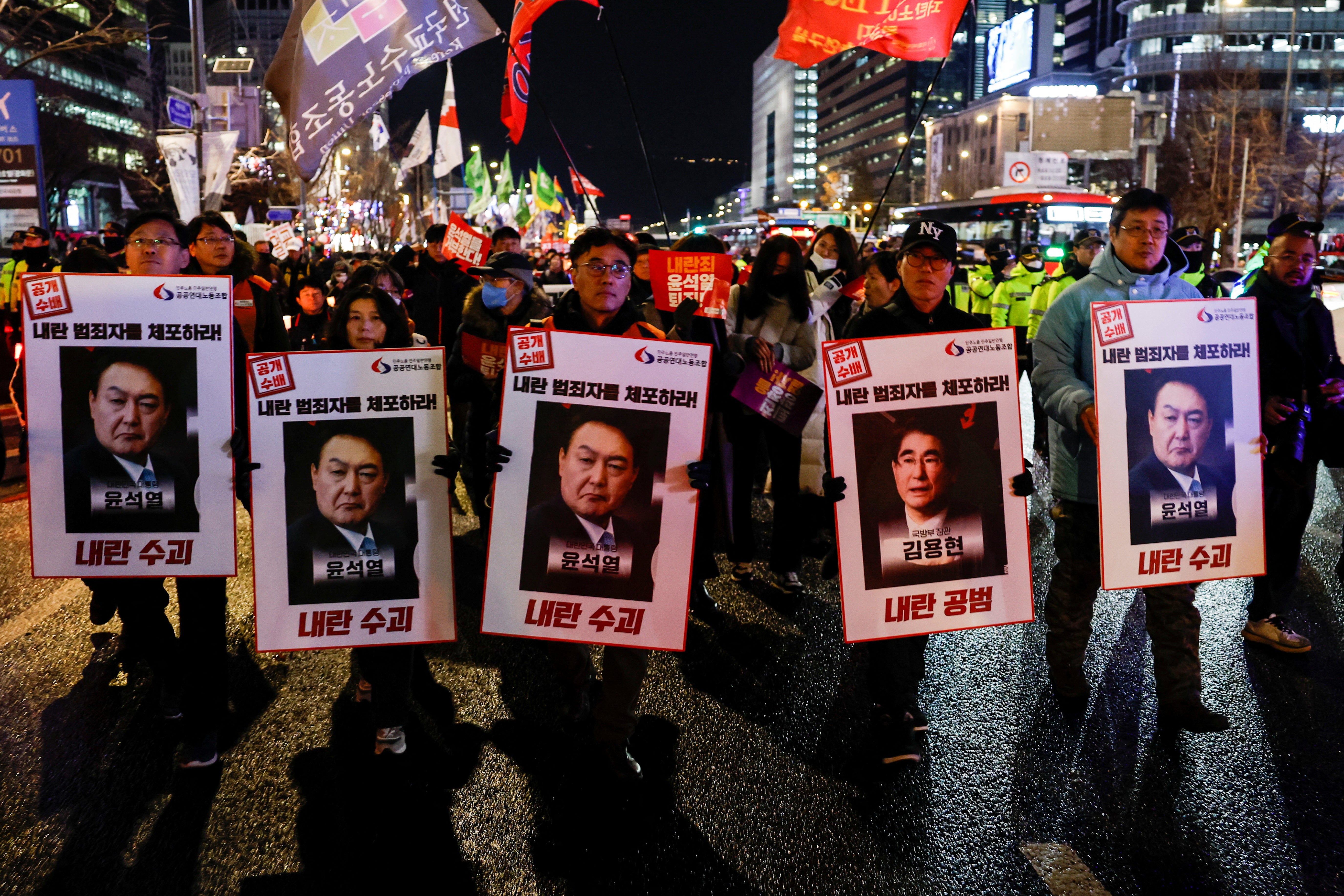
A parliamentary vote is scheduled for Saturday evening, with Democratic Party spokesperson Jo Seoung Iae urging conservative lawmakers to reflect on what he described as an “unconstitutional, illegal rebellion or coup”.
South Korea’s military leaders have distanced themselves from Mr Yoon’s actions. General Park Ahn Soo, the army chief tasked with overseeing martial law, told parliament on Thursday that he had only learned of the declaration when the president announced it on live television, reported the Financial Times.
“I found out about the martial law declaration watching Yoon’s press conference,” General Park said, adding that the military’s role was directed by defence minister Kim Yong Hyun, who has since resigned. Vice defence minister Kim Seon Ho similarly claimed he was informed of the president’s plans only after the announcement.
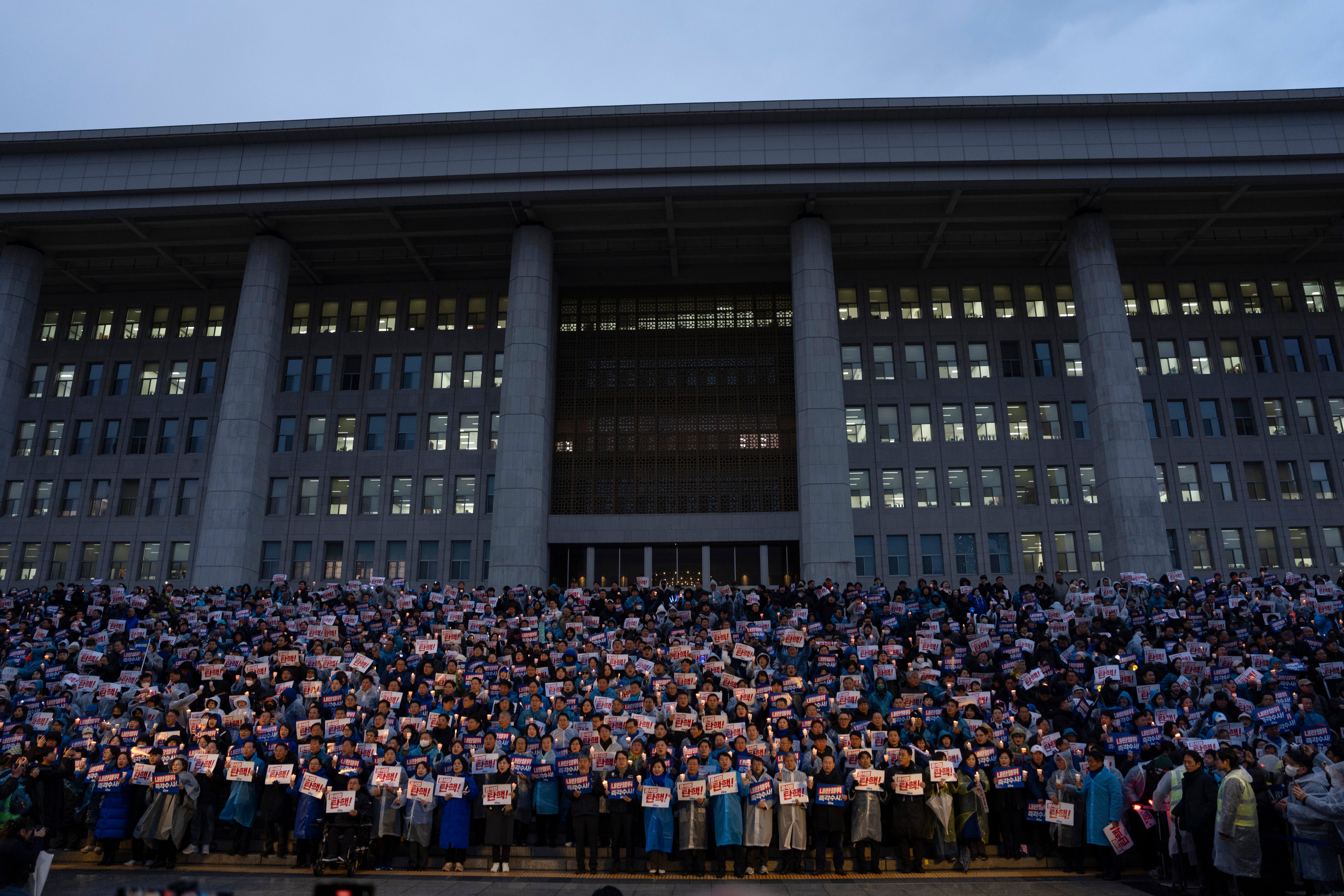
“While we are military experts, we are not experts on martial law,” General Park said during his testimony.
Lee Jae Myung, leader of the opposition Democratic Party and Mr Yoon’s main rival in the 2022 presidential election, described his disbelief upon seeing the announcement.
He told CNN, “That night, after I got off work, I was lying in bed with my wife … when she showed me a YouTube video and said, ‘The president is declaring martial law.’ I replied, ‘That’s a deepfake. It has to be a deepfake. There’s no way that’s real.’” He recalled being shocked when he realised the announcement was genuine.
Earlier, the country’s vice defence minister claimed South Korean soldiers deployed at the National Assembly after President Yoon declared martial law did not carry live ammunition.
Speaking at a defence ministry briefing, Kim Seon Ho said the troops were ordered to the parliament by defence minister Kim Yong Hyun but they were essentially unarmed.
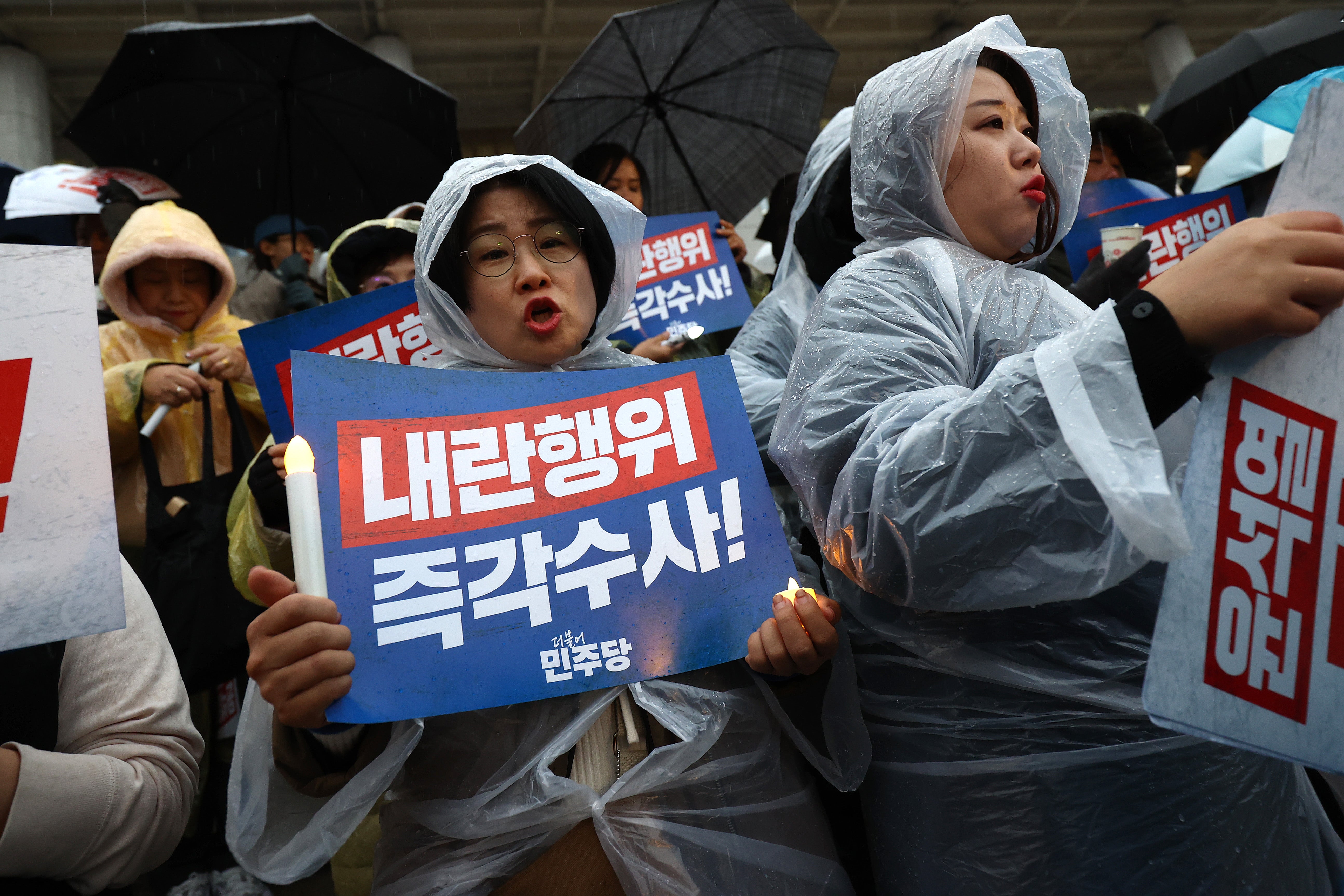
The vice minister, however, accepted responsibility for failing to prevent the martial law order, which sparked national outrage and a political crisis, the BBC reported.
The defence minister quit earlier on Thursday. He apologised for causing disruption and concern to the public. “All troops who performed duties related to martial law were acting on my instructions, and all responsibility lies with me,” he was quoted as saying in a statement by the defence ministry.
The defence minister’s resignation increased pressure on the president, who appears set to imminently face an impeachment motion.
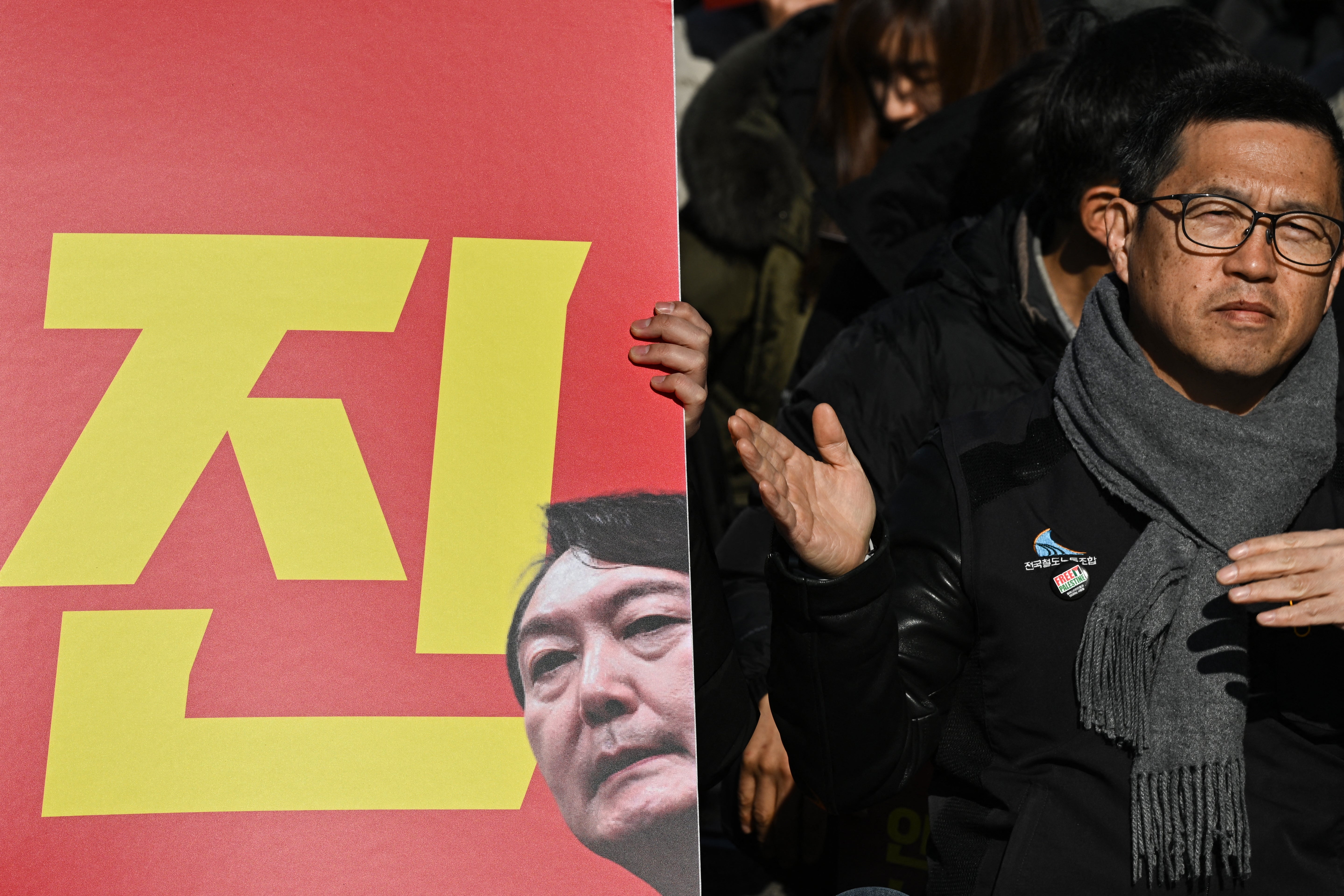
At the parliamentary hearing on Thursday, the vice defence minister said he wasn’t informed about Mr Yoon’s decision to impose martial law. He learned about it from the media.
One thing you must know about South Korea: its vibrant protest culture. People only had hours to organize this demonstration at the National Assembly, & yet they had a band, opera performances and this trot song with lyrics changed to advocate for impeaching President Yoon. Wild. pic.twitter.com/R6AOTwowV0
— Kelly Kasulis Cho (@KasulisK) December 4, 2024
He did not know who had authored the military proclamation suspending the activities of political parties after martial law was declared, but claimed that it didn’t come from the defence ministry.
The decision to deploy troops to the National Assembly, however, came from the former defence minister. “I had fundamentally opposed the deployment of troops over this martial law and I expressed a negative opinion about it,” he claimed. “I would like to apologise to our citizens once again, and, on a personal level, I feel devastated.”
Mr Yoon moved quickly to name Choi Byung Hyuk, a retired general and ambassador to Saudi Arabia, as the new defence minister.
The president continued to stay out of public view as of Thursday and has yet to address the growing calls for his resignation and impeachment.
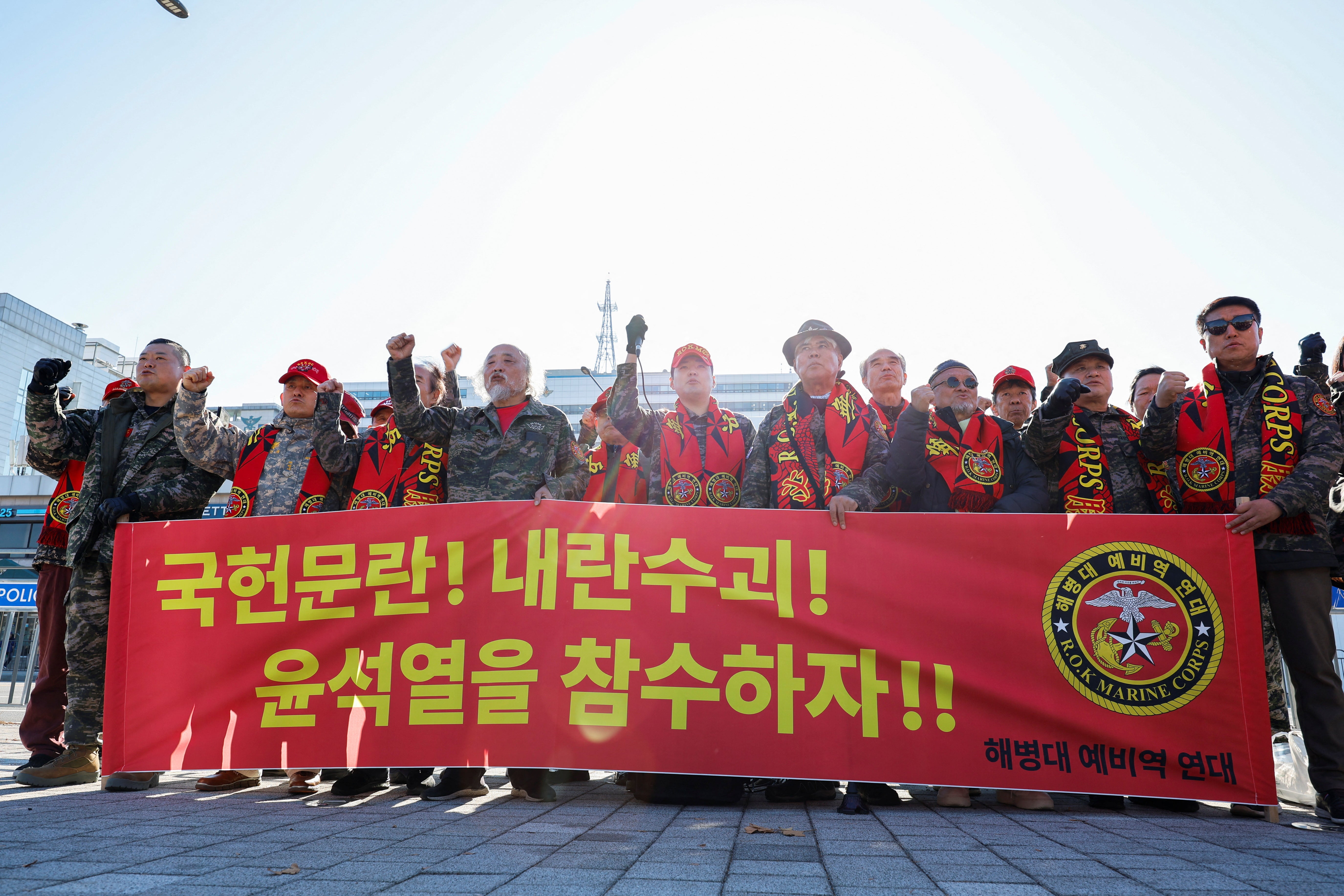
The main opposition Democratic Party, backed by smaller parties, filed an impeachment motion against Mr Yoon on Thursday, accusing him of violating constitutional limits by mobilising the military in a “self coup”. It said that Mr Yoon sought to suppress political opposition and block parliamentary function, actions deemed unconstitutional.
The motion must be passed by a two-thirds majority in the 300-seat National Assembly to go ahead.
The opposition parties hold 192 seats and need eight lawmakers from Mr Yoon’s People Power Party to clear the threshold. The ruling party pledged to oppose the motion but could suffer internal divisions on the matter.
Jo Seoung Lae, spokesperson for the Democratic Party, said they would push for a National Assembly vote on the impeachment motion on Saturday evening to allow conservative ruling party lawmakers enough time to contemplate their position on what he described as an “unconstitutional, illegal rebellion or coup”.
Han Dong Hoon, leader of the People Power Party member who criticised the martial law decision, warned of political instability if the impeachment went ahead. “We must prevent damage to citizens and supporters caused by unprepared political turmoil,” he said.
If impeached, Mr Yoon would be stripped of powers while the Constitutional Court scrutinises the parliament’s vote, with prime minister Han Duck Soo assuming presidential responsibilities in the interim.
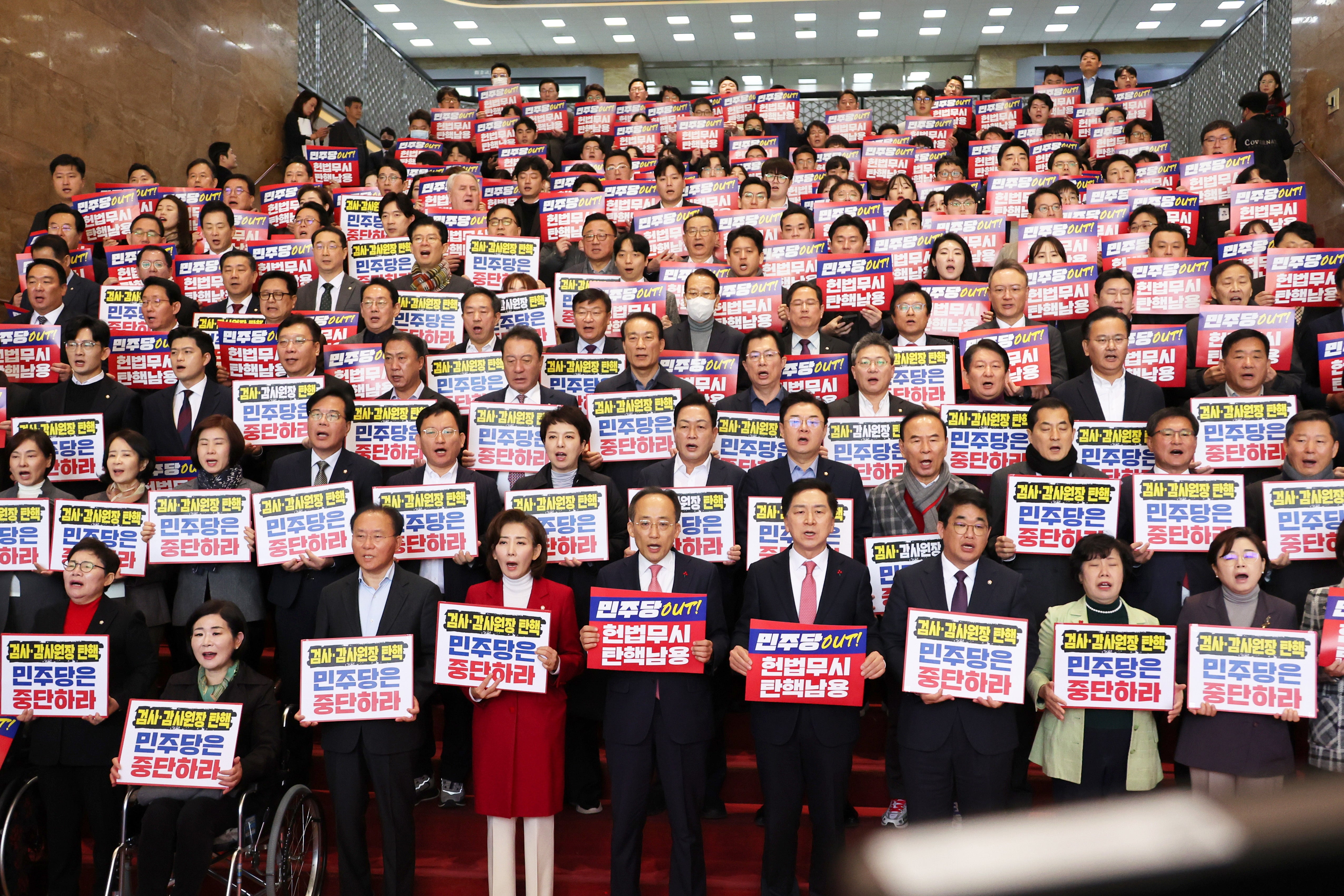
Mr Yoon’s martial law declaration evoked memories of South Korea’s authoritarian past, when military regimes instituted such measures to suppress dissent. South Korea, though, had not witnessed such scenes since its transition to democracy in the late 1980s.
After Mr Yoon’s declaration, troops in full battle gear tried to keep protesters away from the National Assembly as helicopters flew overhead and landed nearby.
In chaotic scenes, opposition lawmakers climbed walls to gain access to the parliamentary chamber as soldiers initially blocked entry.
It wasn’t clear how the 190 lawmakers were able to enter the hall to vote down the martial law decree. Opposition leader Lee Jae Myung and National Assembly speaker Woo Won Shik were seen climbing over walls.
The soldiers and police officers blocked some lawmakers from entering but didn’t aggressively restrain or use force against others.
Additional reporting by agencies.







